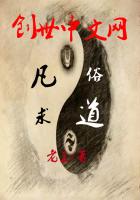On a few systems of law the family organisation of theearliest society has left a plain and broad mark in the lifelongauthority of the Father or other ancestor over the person andproperty of his descendants, an authority which we mayconveniently call by its later Roman name of Patria Potestas. Nofeature of the rudimentary associations of mankind is deposed toby a greater amount of evidence than this, and yet none seems tohave disappeared so generally and so rapidly from the usages ofadvancing communities. Gaius, writing under the Antonines,describes the institution as distinctively Roman. It is truethat, had he glanced across the Rhine or the Danube to thosetribes of barbarians which were exciting the curiosity of someamong his contemporaries, he would have seen examples ofpatriarchal power in its crudest form; and in the far East abranch of the same ethnical stock from which the Romans sprangwas repeating their Patria Potestas in some of its most technicalincidents. But among the races understood to be comprised withinthe Roman empire, Gaius could find none which exhibited aninstitution resembling the Roman "Power of the Father," exceptonly the Asiatic Galatae. There are reasons, indeed, as it seemsto me, why the direct authority of the ancestor should, in thegreater number of progressive societies, very shortly assumehumbler proportions than belonged to it in their earliest state.
The implicit obedience of rude men to their parent is doubtless aprimary fact, which it would be absurd to explain away altogetherby attributing to them any calculation of its advantages; but, atthe same time, if it is natural in the sons to obey the father,it is equally natural that they should look to him for superiorstrength or superior wisdom. Hence, when societies are placedunder circumstances which cause an especial value to be attachedto bodily and mental vigour, there is an influence at work whichtends to confine the Patria Potestas to the cases where itspossessor is actually skilful and strong. When we obtain ourfirst glimpse of organised Hellenic society, it seems as ifsupereminent wisdom would keep alive the father's power inPersons whose bodily strength had decayed; but the relations ofUlysses and Laertes in the Odyssee appear to show that, whereextraordinary valour and sagacity were united in the son, thefather in the decrepitude of age was deposed from the headship ofthe family. In the mature Greek jurisprudence, the rule advancesa few steps on the practice hinted at in the Homeric literature;and though very many traces of stringent family obligationremain, the direct authority of the parent is limited, as inEuropean codes, to the nonage or minority of the children, or, inother words, to the period during which their mental and physicalinferiority may always be presumed. The Roman law, however, withits remarkable tendency to innovate on ancient usage only just sofar as the exigency of the commonwealth may require, preservesboth the primeval institution and the natural limitation to whichI conceive it to have been subject. In every relation of life inwhich the collective community might have occasion to availitself of his wisdom and strength, for all purposes of counsel orof war, the filius familias, or Son under Power, was as free ashis father. It was a maxim of Roman jurisprudence that the PatriaPotestas did not extend to the Jus Publicum. Father and son votedtogether in the city, and fought side by side in the field;indeed, the son, as general, might happen to command the father,or, as magistrate, decide on his contracts and punish hisdelinquencies. But in all the relations created by Private Law;the son lived under a domestic despotism which, considering theseverity it retained to the last, and the number of centuriesthrough which it endured, constitutes one of the strangestproblems in legal history.
The Patria Potestas of the Romans, which is necessarily ourtype of the primeval paternal authority, is equally difficult tounderstand as an institution of civilised life, whether weconsider its incidence on the person or its effects on property.














